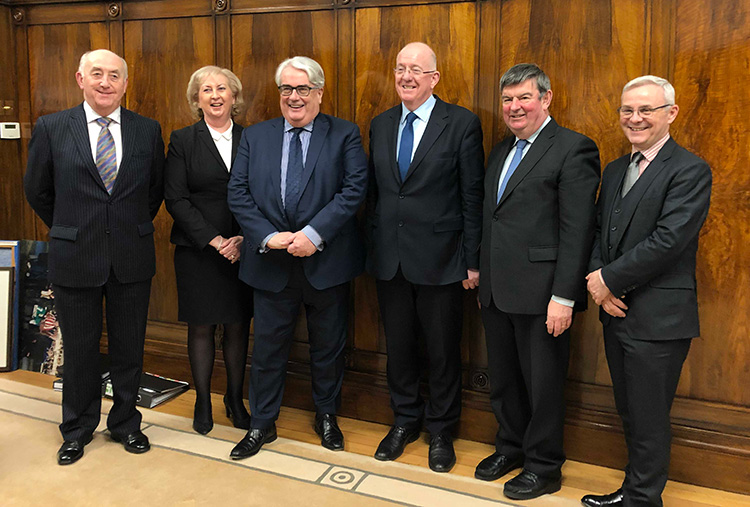
The Establishment of the Judicial Council marks a turning point for the judiciary and in the administration of justice in Ireland. There are a number of functions of the Judicial Council.
The Chief Justice Frank Clarke said today that the overriding function of the Judicial Council is to promote and maintain public confidence in the judiciary and the administration of justice: this is interdependent with the delivery of all of the other functions of the Council. Those functions are extremely wide and will be overseen by the Council and through its Board. Central to the delivery of these objectives however are the various committees which will be established to carry out the work required to be done to ensure that the Council is a success. Work on establishing and providing background research for these committees has already started.
Minister for Justice & Equality Charlie Flanagan TD said at the establishment event where he signed the Order, the establishment of the Judicial Council is a landmark moment in the history of our State. Its primary function is to promote and maintain excellence in the exercise by judges of their judicial functions and high standards of conduct among judges. Having steered the legislation through the Houses of the Oireachtas, I am pleased that we have reached the moment where the Council officially comes into being and can begin its important work. We have fulfilled our promise to have the Council up and running before the end of the year. That is an achievement that we can all be proud of.
Foundation Work
Work to date has involved setting up processes relating to the recruitment of lay persons to those committees which have such members, securing appropriate exchequer funding, the appointment of an Interim Secretary and work designed to enhance the ability of the committees, including the Personal Injuries Guidelines Committee, to hit the ground running.
The Chief Justice acknowledged the support of the Minister for Justice and Equality and his officials, and the CEO and staff of the Courts Service in supporting this early work.
Judicial Education and Support
One of the committees will be the Judicial Studies Committee, whose function will be to ensure the continuing education of judges. It is uncontroversial to say that traditionally judicial education and training has been somewhat unstructured. The Council will work to reach and surpass the standards established in comparable states. Given the immediate importance of the creation of a modern learning and development function for the Irish judiciary, some work has already been done by a small group of judges in advance of the formal establishment of the committee. There will also be support committees for each of the Court jurisdictions. The Chief Justice said that, "It is hugely important to provide appropriate supports for any person with a job to do. The judiciary is no different in that regard and these support committees can provide a structure for identifying support requirements and resources to help with same".

Personal Injuries
The Council's Personal Injuries Guidelines Committee will be the first of the committees to be established in line with the timescales set out in the Act. The Chief Justice has said that, " as I have publicly stated, this is another area where work has already commenced in order that Personal Injuries Guidelines can be produced within the timelines set out in the Act. It is worth commenting at this stage that the first meeting of this committee designate of judges occurred on the 2nd of December which is eight full months ahead of the mandatory deadline set out in the Act for the meeting of the formal committee.
The Importance of Independence
Aligned with the public perception of independence is a requirement that judges are seen to have and uphold the highest standards of judicial conduct. Ethics, impartiality, codes of conduct, and a means to file complaints are all part of this tranche of the Council's upcoming role. Work to establish this committee has also begun.
Sentencing Guidelines
A key requirement for public confidence in the judiciary and justice system is that the judiciary is, and is seen to be, free from any external influence in the carrying out of its functions. It is essential that the Council and its Committees are left to carry out their important functions in line with the statutory requirements and that they are seen to be wholly independent.
The Sentencing Guidelines Committee will involve lay members. The procedures necessary to independently appoint those members have already been commenced. On that basis it is hoped that this committee will be in a position to be established by the Judicial Council at its first meeting and to commence its work when its full membership, including those lay persons, have been identified.
The first full meeting of the Judicial Council will take place on the 7th February 2020.

